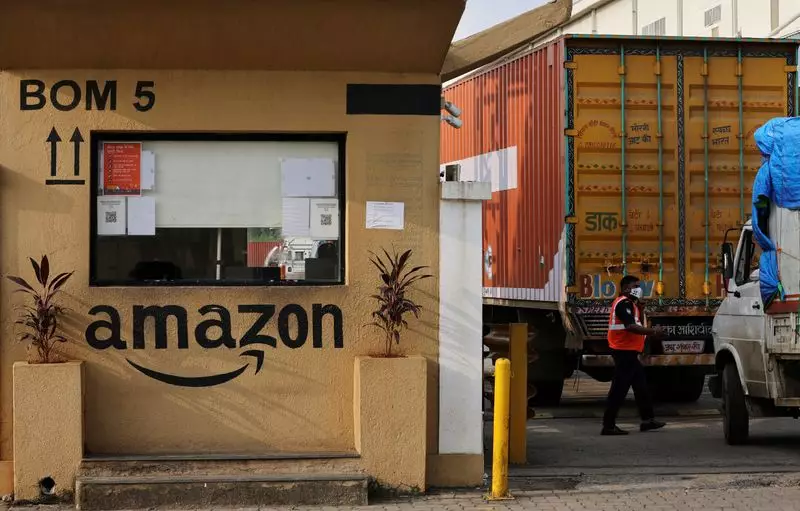In recent developments, India’s financial crime enforcement agency is intensifying its investigation against prominent players like Flipkart and Amazon. Following a series of raids on sellers associated with these e-commerce platforms, the agency is gearing up to summon top executives from both companies. This move not only indicates a stringent regulatory approach but also underlines the growing concerns surrounding foreign investment law violations in India’s increasingly competitive e-commerce sector, which has ballooned to an estimated $70 billion in value.
The situation is particularly noteworthy against the backdrop of an Indian antitrust probe that has recently implicated these companies in favoring select sellers to the detriment of smaller businesses. Such practices, purportedly violating fair trading principles, raise critical questions about the ethics and legality of the operations conducted by these foreign-owned entities.
At the heart of the investigation lies a crucial point of contention: Indian regulations explicitly prohibit foreign e-commerce entities from holding inventory of the products sold on their platforms. The law mandates that these companies operate purely as marketplaces that facilitate transactions between sellers and consumers. Nevertheless, the allegations suggest that both Amazon and Flipkart may have skillfully navigated around these regulations, allegedly dictating inventory control through select sellers and creating a façade of compliance.
The Enforcement Directorate has been scrutinizing the business practices of these companies for several years. Recent findings from antitrust inquiries have only corroborated suspicions that firms like Flipkart and Amazon have significantly influenced the operational landscape, employing tactics that could easily be construed as violations of both financial and fair trade regulations.
The chilling effect of regulatory actions is expected to resonate across the entire e-commerce ecosystem in India, particularly as the ramifications of such scrutiny could stifle growth and innovation in a sector that thrives on agility and responsiveness to consumer demands.
The recent raids, which have now been substantiated by intelligence reports, targeted several sellers affiliated with Flipkart and Amazon. These operations, carried out by the Enforcement Directorate, involved a thorough examination of financial records and executive testimonies to unravel the complexities of their engagements with the U.S.-based e-commerce giants.
Among the entities scrutinized, Appario—previously recognized as Amazon’s largest seller in India—came under severe scrutiny. Reports suggested that Appario was afforded special privileges, including preferential fees and exclusive tools for inventory management, which many other sellers could not access. This sort of differential treatment raises alarming questions about the level playing field within the e-commerce landscape, as smaller sellers struggle to maintain their market positions against giants with seemingly deep pockets and significant influence.
The scrutiny on Amazon and Flipkart is part of a broader narrative concerning the regulation of online platforms in India. As complaints concerning unfair business practices continue to emerge, authorities are under mounting pressure to establish clearer guidelines that govern the operations of e-commerce giants. This scrutiny extends beyond just sales and inventory practices, encompassing aspects such as delivery services and treatment of smaller retailers.
Recent revelations have also implicated food delivery services like Zomato and Swiggy, suggesting that they too may have breached laws by favoring select restaurants. These patterns of favoritism are indicative of systemic issues that threaten the sustainability of smaller players within the market, compelling regulatory bodies to step up their oversight.
As the investigation unfolds, both Flipkart and Amazon face not only potential fines or legal sanctions but also reputational challenges that could affect customer loyalty and investor confidence. The increased regulatory focus on foreign e-commerce entities signals a pivotal shift in the relationship between Indian authorities and these multinational companies.
Ultimately, how these investigations are navigated may set precedence for future operations and regulatory policies affecting the entire e-commerce realm in India. The outcome could reshape the market dynamics and, potentially, the very frameworks governing fair competition and foreign investment, thereby reassuring smaller players about their viability in an industry dominated by a few key players.

